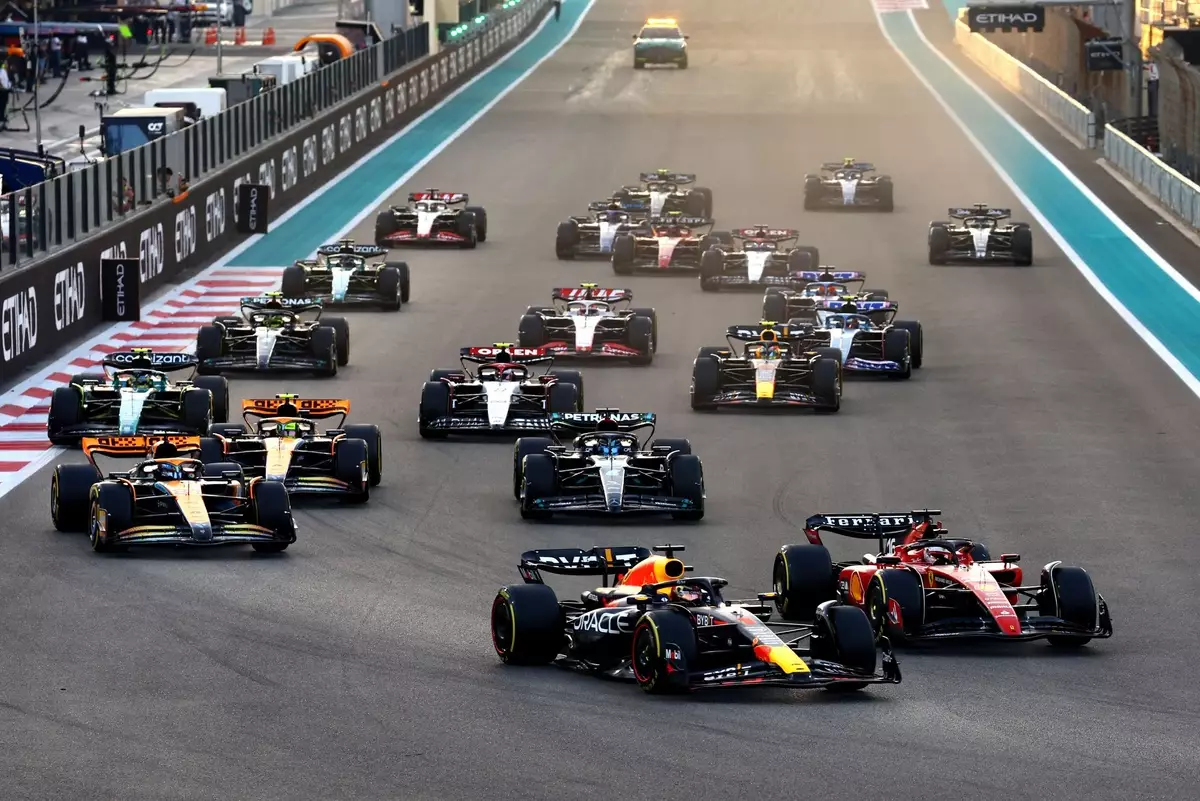In the world of Formula 1, the excitement surrounding the introduction of a rookie sprint race in December’s Abu Dhabi post-season test has reached a standstill. This ambitious plan aimed to provide fresh talent with crucial experience in current F1 cars, but logistical hurdles have forced stakeholders to postpone the initiative. While the proposal had received broad support and appeared to be heading for approval, practical concerns have led to a decision that pushes the idea back for reconsideration in 2025. This situation is emblematic of the complex interplay between innovation and regulation in one of the most high-stakes sports.
The proposed rookie race was limited to a select group of ten drivers, set to take place immediately after the final Grand Prix of the season. Combining a brief qualifying session with a sprint race, the day was designed to integrate seamlessly with the traditional Pirelli tire test typically held during the Abu Dhabi test sessions. The initiative aimed to balance the competitive landscape and provide emerging drivers with more ‘seat time’ while handling modern F1 machinery. Although the concept was ultimately shelved for this year, discussions will continue to explore how it can be effectively re-implemented in future post-season events.
Logistics are a cornerstone of Formula 1 operations, where the pressure to deliver on time is unparalleled. During a recent F1 Commission meeting, it became clear that the timeline established for launching the rookie race simply wasn’t feasible. The very fabric of F1 is woven through meticulous planning and coordination; anything less could lead to disorganization and confusion. With only two months to arrange the event, concerns regarding the complexity of logistics led the Commission to prioritize thorough preparation over the rushed implementation.
Recognizing the potential benefits for new drivers, all stakeholders agreed on the necessity of delaying the implementation until 2025. This delay is considered a strategic move to allow ample time for discussions and planning, ensuring that when the rookie race does take place, it will be an event to remember.
Aside from the rookie race, the F1 Commission engaged in extensive discussions regarding the technical regulations scheduled for 2026. Teams had initially voiced concerns during the preliminary outline in June, leading to a significant reevaluation of the rules. The new regulations propose an increase in aerodynamic performance, which is crucial for enhancing competitive balance among teams.
As part of refining the new technical landscape, the Commission committed to further collaborating with teams and the FIA, acknowledging the complexities of changing car dynamics. These adjustments are expected to play a vital role in shaping the vehicles for the 2026 season, impacting everything from speed to safety. Additionally, the announcement of three three-day tests ahead of the new season will provide critical opportunities for teams, particularly new entrants like Audi and the Red Bull-Ford alliance, to familiarize themselves with the radical shifts in power unit technology.
While significant changes have been discussed, it is essential to note that all modifications remain contingent upon the formal approval of the FIA’s World Motor Sport Council, which is set to meet on 17 October. This council plays a pivotal role in shaping the future of the sport, ensuring that rules are not only innovative but also uphold the spirit of competition.
As Formula 1 continues to evolve, the interplay of new ideas such as the rookie sprint race and shifting technical regulations underscores the sport’s ongoing commitment to developing new talent while ensuring sustainability and fairness. The abandonment of the rookie race may feel like a setback, but it reflects a broader intention to enhance the sport with deliberate and thoughtful changes. The world of F1 is eagerly waiting to see how these developments unfold as fresh talent prepares to make its mark in coming seasons.
The discussions within the F1 Commission signal a critical moment for the sport, as it seeks to navigate the delicate balance of innovation, regulation, and emerging talent in a rapidly changing landscape. While the immediate future may not feature a rookie race in Abu Dhabi, the groundwork laid today paves the way for a more structured and rewarding approach to developing the next generation of drivers. With this iterative process of planning and adjustment, Formula 1 sets itself on a path toward a more dynamic and sustainable future.

